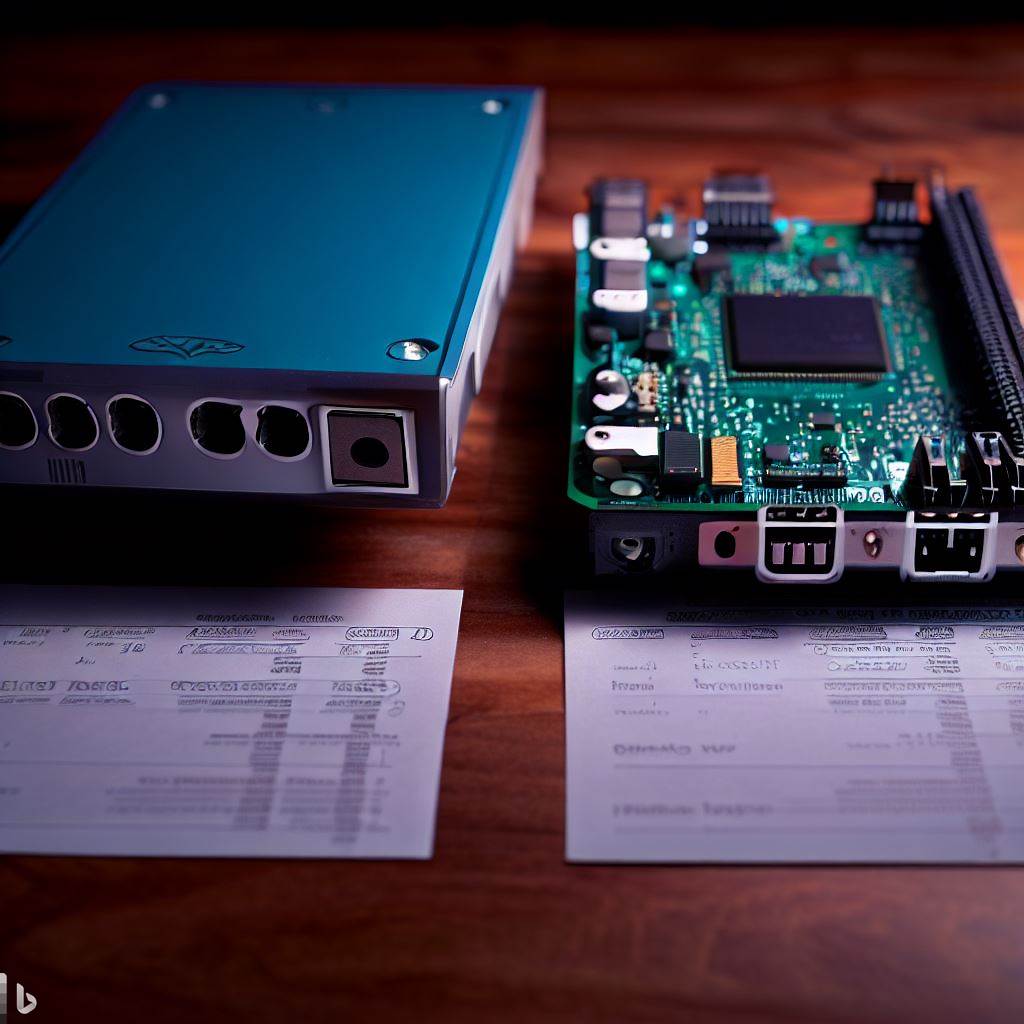RUNa Node Revolution: Empower the Bitcoin Network with Odroid M1 DIY or Plug-and-Play Node

Introduction
In the vast, decentralized world of Bitcoin, nodes are the unsung heroes. They validate transactions, propagate them across the network, and maintain a copy of the entire blockchain. In essence, nodes are the backbone of the Bitcoin network, ensuring its integrity and security. This article introduces you to the concept of running your own Bitcoin node, a step that not only benefits you but also strengthens the entire Bitcoin ecosystem.
Why Run Your Own Bitcoin Node
Running your own Bitcoin node comes with a host of benefits. For starters, it gives you the highest level of security and privacy when making transactions. As a node operator, you verify your transactions, eliminating the need to trust third-party services. This is the essence of Bitcoin’s decentralization – you’re in full control.
Moreover, running your own node contributes to the Bitcoin ecosystem. The more nodes in the network, the more decentralized and resilient the network becomes. By running your own node, you’re helping to maintain the robustness and health of the Bitcoin network.
Software for Running a Bitcoin Node
To run a Bitcoin node, you’ll need software that can interact with the Bitcoin network. One popular option is Umbrel OS easily installable in a preinstalled Ubuntu 20.4, which provides a user-friendly interface and a host of features. However, there are also alternatives like Citadel, MyNode, and Start OS, each with its unique strengths. The choice of software depends on your specific needs and technical expertise.
Setting up the software is usually straightforward. Most software options provide detailed guides to help you through the process. Remember, the software is your interface to the Bitcoin network, so it’s crucial to choose one that you’re comfortable with.
Hardware from Run a Bitcoin Node
When it comes to hardware, you have several options. You can run a node on an old PC or Mac, buy a refurbished device, or get a new node device. Each option has its pros and cons, and the best choice depends on your budget, technical skills, and how much time you’re willing to invest.
One popular hardware option for running a Bitcoin node is Raspberry Pi. However, alternatives like Odroid M1 offer more power and flexibility. For instance, the Odroid M1 comes with 8GB RAM and 1-2TB NVMe options, making it a robust platform for running a Bitcoin node & Lightning node.
Guide to Running a Bitcoin Node on Odroid M1
Running a Bitcoin node on Odroid M1 is a straightforward process. First, you’ll need to install your chosen software on the device. Once the software is up and running, you can connect the device to the Bitcoin network and start validating transactions.
One of the advantages of Odroid M1 over Raspberry Pi 4 is its superior performance. With its powerful processor and ample RAM, the Odroid M1 can handle the demands of running a Bitcoin node more efficiently than a Raspberry Pi 4, as it will not heat up because of integrated heat sink in the board and will run your node 24/7 with no sound & next to nothing electricity consumption.
Bitcoin Node E-shop
If you’re looking to buy a new or refurbished device for running a Bitcoin node, the Bitcoin node e-shop is a great place to start. Here, you’ll find a variety of devices, including the Odroid M1 and other Raspberry Pi alternatives. Whether you’re a beginner looking for a plug-and-play solution or a tech-savvy user planning a DIY project, the e-shop has something for everyone.
Conclusion
Running your own Bitcoin node is a rewarding endeavor. Not only does it give you control over your transactions, but it also allows you to contribute to the Bitcoin network’s decentralization and security. With platforms like the Odroid M1 and software options like Umbrel OS, running your own node has never been easier. So why wait? Join the Bitcoin revolution!
Based on the search results, it appears that there are positive sentiments towards runabitcoinnode.com and their products. The Odroid M1, one of their offerings, is highlighted as a good alternative to Raspberry Pi for running a Bitcoin & Lightning Node. The average review score is high, indicating customer satisfaction.
Perfect Clients for RUNaBitcoinNode
The perfect clients for RunABitcoinNode would be individuals or organizations interested in participating in the Bitcoin network by running their own nodes. This could include:
- Bitcoin enthusiasts: Individuals who are passionate about Bitcoin and want to contribute to the network’s decentralization and security.
- Privacy-focused users: Those who value privacy and want to verify their own transactions without relying on third-party services.
- Tech-savvy users: Individuals with some technical expertise who are comfortable setting up and maintaining their own Bitcoin node.
- Educational institutions or research organizations: These entities might run a node for educational purposes, research, or to support the Bitcoin network.
Summary and Conclusion
Running your own Bitcoin node is a rewarding endeavor that not only gives you control over your transactions but also allows you to contribute to the Bitcoin network’s decentralization and security. With platforms like the Odroid M1 and software options like Umbrel 20.04 OS to be able to install Umbrel OS in less than 20 min, running your own node has never been easier.
Reviews indicate that RunABitcoinNode is a reliable source for hardware, particularly the Odroid M1, which is a robust and efficient alternative to Raspberry Pi. The perfect clients for RunABitcoinNode are those who are passionate about Bitcoin, value privacy, and are willing to invest time and resources into maintaining their own node.
In conclusion, whether you’re a Bitcoin enthusiast, a privacy-focused user, or a tech-savvy individual, running your own Bitcoin node is a significant step that empowers you and strengthens the entire Bitcoin network. With resources like RunABitcoinNode, joining the Bitcoin revolution is within your reach.
Leave a Reply